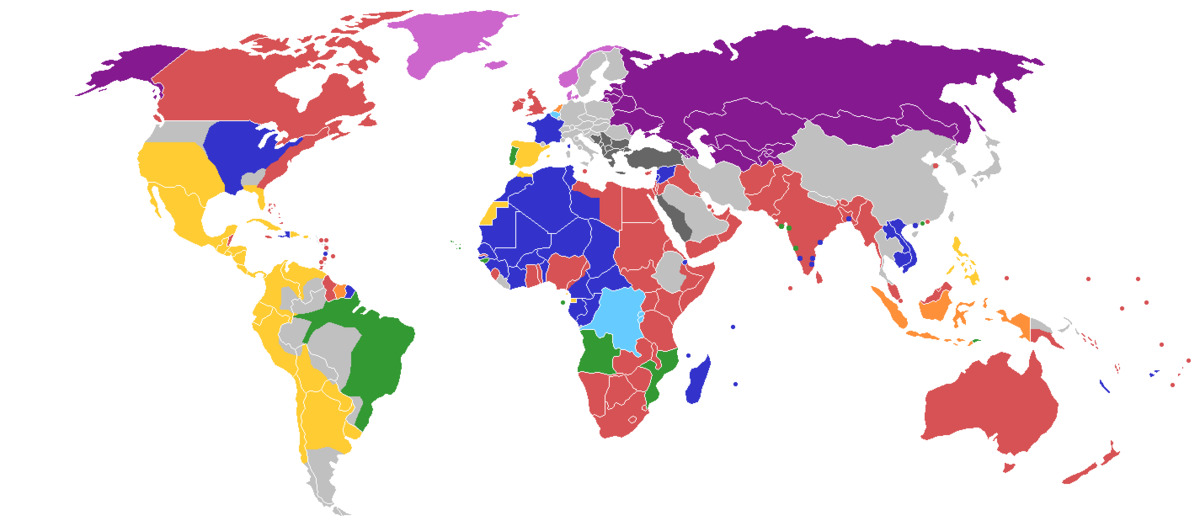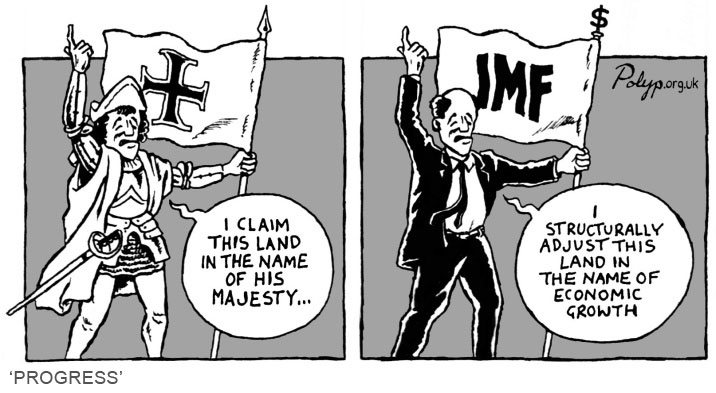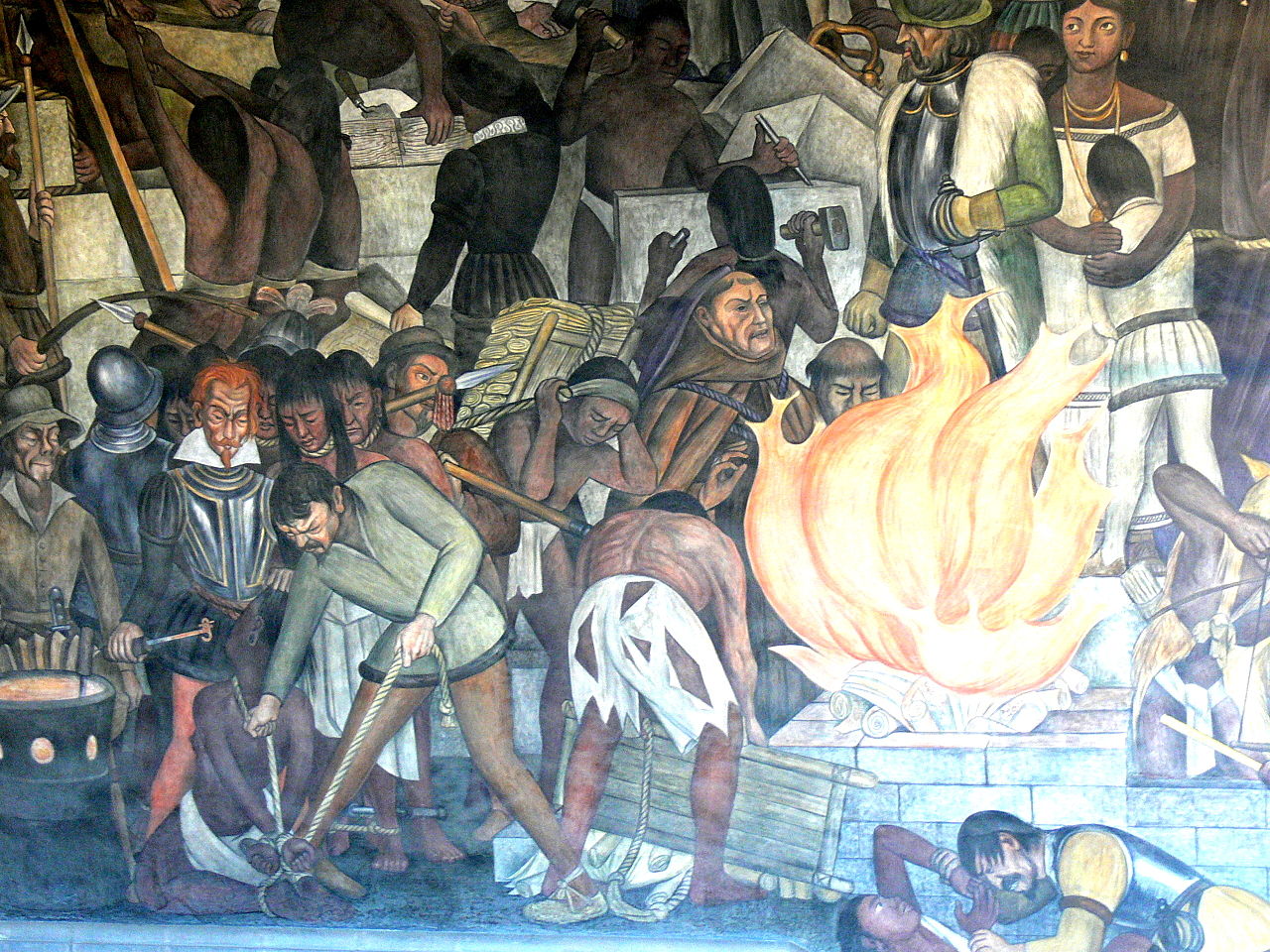By Dimitris Kouvaras,
I assume that the word does ring a bell with you, albeit somewhat vaguely. If it came to you that it must somehow be related to colonialism, as its etymology would imply, you guessed right. Still, chances are that you haven’t bumped on it per se. If so, stick along to find out all about decoloniality and the radical movement of historic-philosophical thought underpinning it, which is rendered surprisingly relevant in the current global circumstances.
For the moment, though, let’s begin with the familiar issue of colonialism. Since the late 15th century, European powers begun a quest for exploration of formerly unknown corners of the globe, intertwined with a quest for resources and lucrative trade routes. The Spaniards and the Portuguese were the first in the game, followed by the Dutch, the French, and the British. Merchant settlements, cartographical or scientific expeditions, and occasional military interventions gradually gave place to more permanent forms of control and administrative division of the infiltrated areas: colonies were now a thing. Extraterritorial gains became a prime objective for European states for reasons of prestige, mutual antagonism, and financial expansion, culminating in the late 19th-century Imperialism.
Colonialism wasn’t always as methodical as it might seem, nor did it penetrate entirely the involved territories. Still, it transformed the world culturally and geopolitically. A prime factor in the process was capitalism. Indeed, this novel financial system, involving capital accumulation and investment geared towards increased profits, and, at a later stage, mass industrial production, spread around the world creating hierarchical economic relations through extractivism and the exploitation of local labor. In the case of the Americas, and parts of Africa, the latter took the form of slavery, creating a lucrative trade that took advantage of regional hierarchies and rivalries to ensure a continuous supply of forced labor from East to West. However, what was also created was incalculable human suffering, toil and death. Overall, this process changed the world’s demographics and often dismantled regional production patterns, as they were substituted by those introduced by colonial administrations.

In this context, Europe -and later also the US- became the epicenters of global developments. Arbitrary lines were drawn on maps to define spheres of influence and create distinct dominions. These were to outlive the phenomenon of colonialism itself, largely determining modern geopolitics. As for the latter, it began dismantling rapidly after Europe’s suicide in the Second World War, paving the way for the political movement of decolonization, advocating for the colonies’ rights to independence and statehood, but also intertwined with the social liberation movements that shook the West in the 60s, targeting issues of race, sex, and class. In 2023, decolonization appears complete as colonialism is over and out. But what of decoloniality?
The word refers to the undoing, or the mitigation, of coloniality, a term introduced by the Latin American thinker Annibal Quijano. He intuited that the legacy of colonialism didn’t end with decolonization, as its multivalent effects operated not only on the geopolitical and economic but also on the sociocultural and epistemic levels. What this means is that, since the beginning of the Americas’ conquest in the late 15th century, a colonial matrix of power was created, through which European characterizations, practices, values, and thinking categories were propagated on a global level, provoking the dissipation of traditional forms of know-how and understanding. An “international system” was created, fostering an epistemic monopolarity centered on an alleged Western technological, sociocultural, and scientific superiority, which became the global standard. Coloniality, therefore, refers to the implicit effects of colonization, about the legitimation and global imposition of a Western way of thinking and doing, correlative to the notion of modernity.
In terms of the economy, Quijano emphasized the propagation of unequal or exploitative relations, as multinational corporations came to substitute colonial command of resources. On an epistemic level, it could be argued that the very characterization of former colonies as “developing countries” testifies to coloniality’s modern grasp: it presupposes economic growth as a univocal marker of development, embedded in a unilinear conception of time and of the idea of progress, corresponding to how these concepts developed in Europe since the Enlightenment. These concepts are lenses for the understanding and interpretation of reality, i.e. epistemic tools. However, for the theorists of decoloniality, their undisputed imposition on civilizations with different conceptions seems to limit, if not unfair.
On the sociocultural level, the signification of Europeans became the foundation of the concept of “races”, seen as structurally exclusionary and hierarchizing, functioning as a marker of difference to support the superiority of the European human archetype. Intertwined with this is also the discourse on gender norms and practices, yet another complex field of discrimination, aggravated further by the conflation of Western and local prejudices. The reasoning behind decoloniality aims is to expose the fact that such conceptions are sociohistorical constructions, and thereby not irrefutable truths, as well as that modernity, is not neutral, but a charged concept, often inapplicable to the particularities of the various regions of the world.

It goes beyond theoretical demonstration. Its essence lay in transforming these insights into action (praxis) in combatting the prevalence of a monopolar way of thinking, fostering the development of a pluriversal matrix of knowledge instead. According to this movement, regional conceptualizations, practices, and mentalities must be preserved and cultivated, to be reinstated as legitimate avenues of connecting with and apprehending reality. The immersion in nature plays an important role in this vision, as a prominent argument of decoloniality is that the dichotomies human-culture/nature and nurture/nature are exclusively Western, non-pertaining to the linguistic and conceptual arsenal of other civilizations. Nature is not to be seen as a separate entity to be exploited, as it has been in Europe since the times of Francis Bacon. As obvious, the aspired modus vivendi breaks with the capitalist canon and incorporates a communal organization with an emphasis on local production and consumption. Nevertheless, capitalism as a reality is not denied.
From decoloniality, one can gain insights into the way our modern mindsets have been forged, and our concepts shaped, to relativize their convictions and question the status quo. Still, some of its very notions invite provocative questions. To what extent does epistemic universality differ from epistemic relativism or even epistemic nonsense, especially regarding scientific matters, which require a degree of unambiguity? Correspondingly, what should be done with personal human rights, which are also a Western conception?
These are pressing issues. However, decoloniality, as I understand it, firmly embraces the values of humanism regardless of its origin. In light of this, it must be acknowledged that this Latin American thought movement deserves more global attention, as an alternative path forward, especially in times when traditional institutions and practices -financial, environmental, or social- are disputed.
References
- MIGNOLO, W. D., & WALSH, C. E. (2018). On Decoloniality: Concepts, Analytics, Praxis. Duke University Press. Available here
- QUIJANO, A. (1992): «Colonialidad y modernidad/racionalidad». Perú Indígena, 13 (29), pp. 11-20. Available here
- QUIJANO, A. (2000). Colonialidad del poder y clasificación social. Cuestiones y horizontes.




